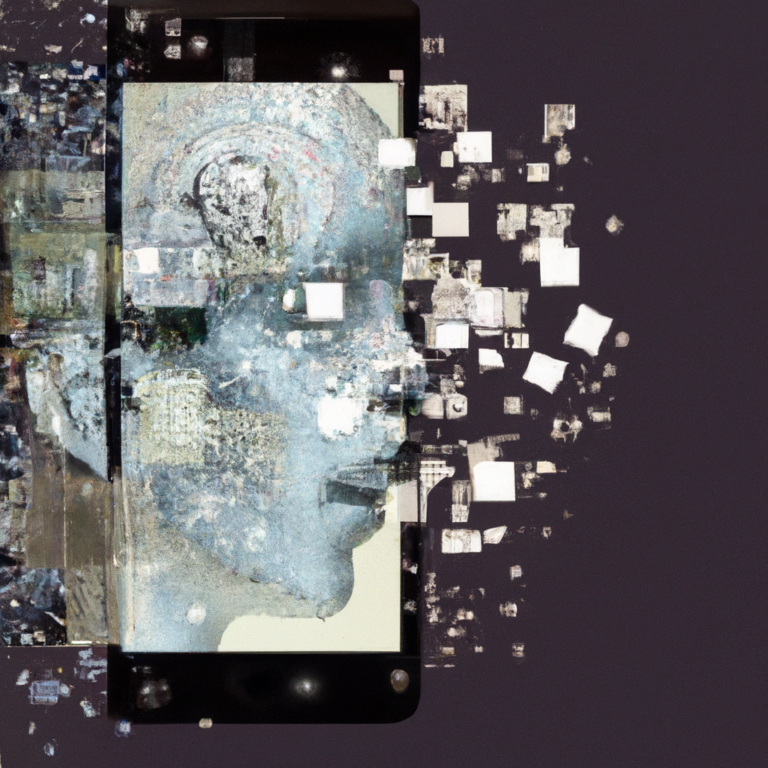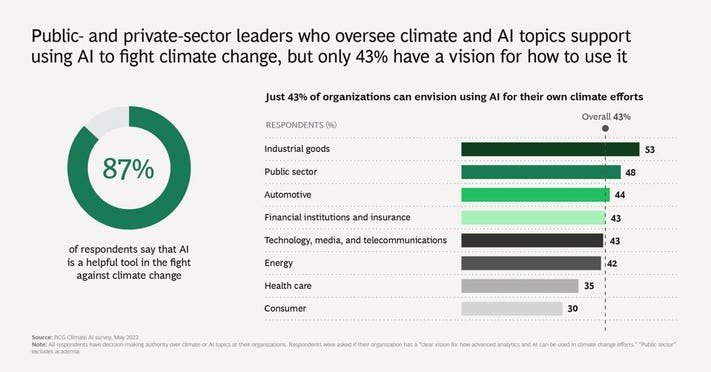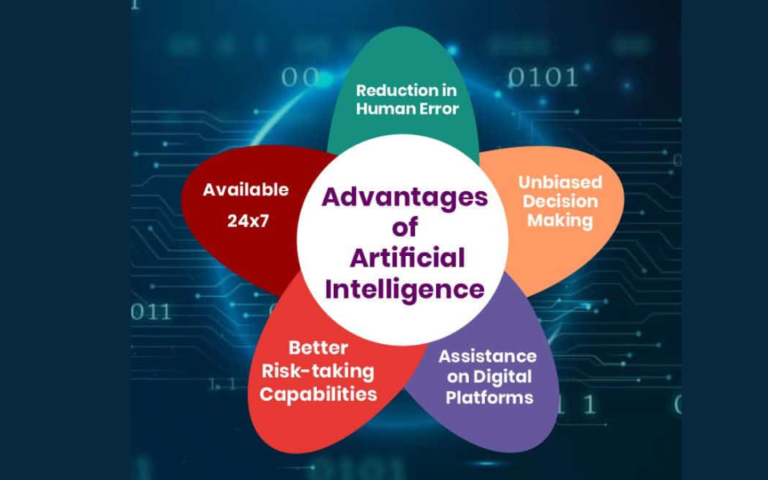How To Stay Safe From AI: How To Protect Yourself From The Potential Dangers Of AI
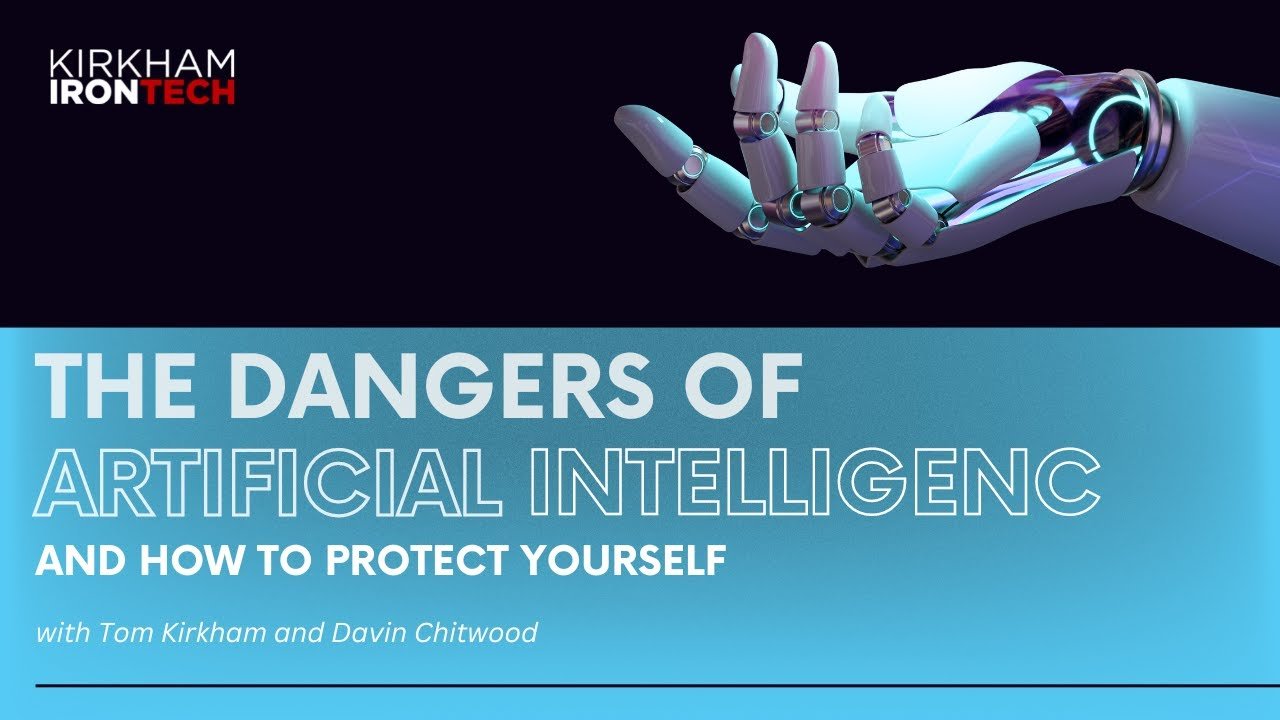
In a world where artificial intelligence is becoming increasingly prevalent, it is crucial to understand how to protect yourself from the potential dangers AI can pose. From data breaches to privacy invasion, AI has the capability to impact our lives in ways we may not even realize. This article aims to provide you with valuable insights and practical tips on how to stay safe from AI, empowering you to navigate this rapidly evolving technological landscape with confidence and peace of mind.
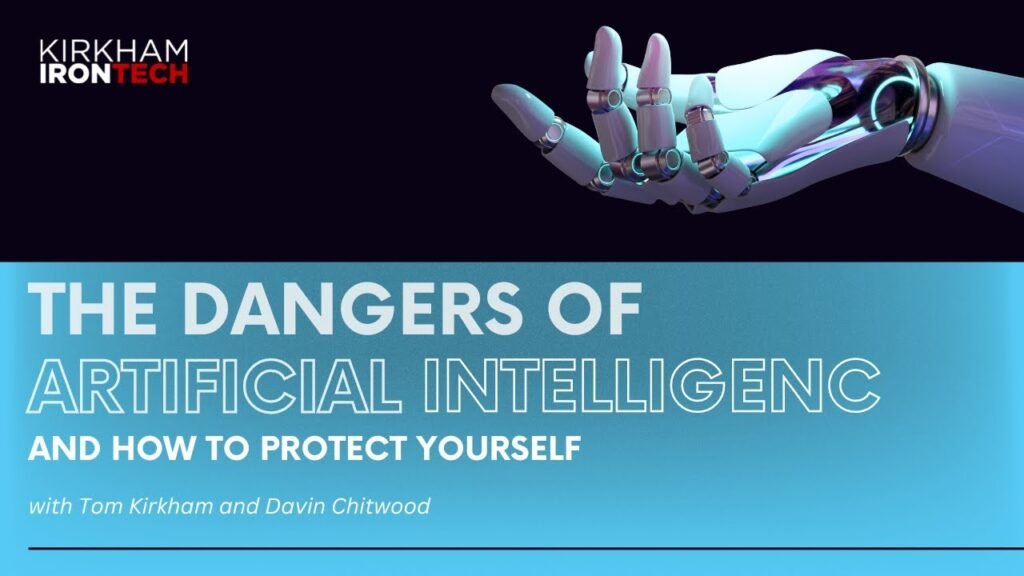
This image is property of i.ytimg.com.
Understanding AI and Its Potential Dangers
Artificial Intelligence, or AI, is an advanced technology that enables machines to perform tasks that would typically require human intelligence. These tasks can range from speech and image recognition to complex decision-making processes. While AI has brought numerous benefits and advancements in various industries, it is essential to recognize its potential dangers and take necessary precautions to stay safe.
What is Artificial Intelligence (AI)?
Artificial Intelligence refers to the development of computer systems that can perform tasks without explicit human instructions. These systems are designed to learn from data, identify patterns, and make decisions or predictions based on that information. AI utilizes techniques such as machine learning, natural language processing, and neural networks to simulate human intelligence.

This image is property of brightsec.com.
The Potential Dangers of AI
While AI has the potential to revolutionize various aspects of our lives, there are concerns regarding its potential dangers. One of the primary concerns is the threat to privacy and security. AI systems often require access to personal data to function effectively, raising questions about how this data is used and stored. Additionally, AI algorithms can sometimes be prone to bias, leading to unfair or discriminatory outcomes.
Another significant danger is the possibility of AI malfunctions. Even with extensive testing and development, AI systems can still make errors or misinterpret data, potentially leading to disastrous consequences. Moreover, there is a risk of AI systems being manipulated or hacked by malicious actors to spread misinformation, influence decision-making processes, or cause harm.
The Importance of Staying Safe from AI
Given the potential dangers associated with AI, it is crucial to prioritize safety measures to protect ourselves and our society. By understanding the risks and taking proactive steps, we can mitigate the negative effects and harness the full potential of AI technologies.

This image is property of ik.imagekit.io.
Privacy and Security Measures
Minimizing Personal Data Exposure
To safeguard your privacy from AI systems, it is essential to minimize the exposure of your personal data. Review the privacy settings of apps and devices that you use regularly and limit the amount of personal information you provide. Be cautious about sharing sensitive data on social media or other platforms, as this information can be collected and used by AI systems.
Using Strong and Unique Passwords
Maintaining strong and unique passwords for your online accounts is crucial to prevent unauthorized access to your personal information. Avoid using easily guessable passwords and consider using a reputable password manager to generate and store complex passwords securely. Regularly update your passwords and avoid reusing them across multiple platforms.
Implementing Two-Factor Authentication
Adding an extra layer of security through two-factor authentication (2FA) can significantly enhance your protection against unauthorized access. Enable 2FA for your banking, email, and social media accounts, among others. This ensures that even if someone obtains your password, they would still need a second form of verification to access your accounts.
Regularly Updating Your Devices and Software
Keeping your devices and software up to date is essential for maintaining security against potential vulnerabilities that AI systems can exploit. Regularly check for updates and install them promptly. Updates often contain security patches that address any known vulnerabilities, ensuring that your devices and software are protected from evolving threats.
Guarding Against AI Malfunctions and Manipulation
Understanding AI Malfunctions
AI systems, despite their sophistication, are not infallible. It is crucial to understand that these systems can malfunction, misinterpret data, or produce unintended outcomes. By familiarizing yourself with the capabilities and limitations of AI systems, you can identify potential malfunctions and take appropriate action to prevent potential harm.
Recognizing AI Manipulation
AI systems can be manipulated by malicious actors to spread false information, influence public opinion, or perform unethical actions. It is essential to remain vigilant and develop critical thinking skills to identify potential AI manipulation. Cross-referencing information from multiple reliable sources can help verify the accuracy and integrity of the information provided by AI systems.
Verifying Information from AI Systems
When relying on information provided by AI systems, it is advisable to verify the information independently. AI algorithms can sometimes generate false or misleading information due to biases or errors in data processing. By fact-checking and corroborating the information obtained from AI systems, you can ensure that it is accurate and reliable.
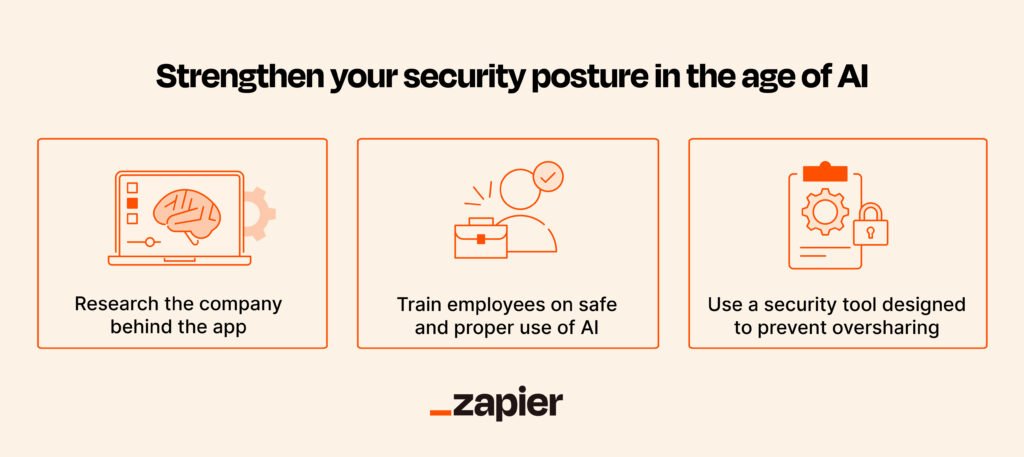
This image is property of images.ctfassets.net.
Securing AI-powered Devices and Systems
Securing Home Assistant Devices
Home assistant devices, such as smart speakers or virtual assistants, often utilize AI technology to provide convenient services. To secure these devices, change default usernames and passwords, as these are commonly targeted by hackers. Regularly update the firmware or software of these devices to patch security vulnerabilities. Limit the permissions granted to these devices and disable features that you don’t use.
Protecting IoT (Internet of Things) Devices
IoT devices, including smart home devices, wearables, and connected appliances, can also be vulnerable to AI-related security threats. Secure your IoT devices by setting strong passwords and enabling encryption. Regularly check for firmware updates from the device manufacturers and promptly apply them. Additionally, consider isolating IoT devices on a separate network to minimize the potential impact of a compromised device.
Securing Industrial Control Systems
In industrial settings, AI-powered systems often control critical infrastructure and machinery. Securing these systems is crucial to prevent potential risks or disruptions. Implement rigorous access control measures to ensure that only authorized personnel can access and modify these systems. Regularly monitor and update the software and firmware of industrial control systems to address any security vulnerabilities.
Educating Yourself on AI Ethics and Regulations
Understanding the Ethical Issues Surrounding AI
With AI playing an increasingly prominent role in society, it is important to understand the ethical implications of AI technology. Educate yourself on topics such as AI bias, algorithmic fairness, and privacy concerns. By developing a deeper understanding of these ethical issues, you can actively contribute to ensuring that AI developments align with societal values and principles.
Keeping Up with AI Regulations
Governments and regulatory bodies are developing frameworks and regulations to address the challenges posed by AI. Stay informed about the AI regulations and policies in your jurisdiction. This knowledge will enable you to advocate for responsible AI practices and ensure that AI technologies are developed and used in a manner that prioritizes safety, fairness, and transparency.
Contributing to Responsible AI Development
As an individual, you can contribute to responsible AI development by actively participating in discussions, conferences, and initiatives related to AI ethics and safety. Engage with experts, policymakers, and stakeholders to voice your concerns and ideas. By promoting responsible AI practices and encouraging transparency, you can help shape the future of AI in a way that benefits humanity.

This image is property of dlabs.ai.
Maintaining Awareness of AI’s Impact on Employment
Preparing for Potential Job Displacement
AI technologies have the potential to automate certain tasks, leading to changes in the job market. It is essential to stay informed and be prepared for potential job displacement. Stay updated on industry trends and advancements to identify areas that may be affected by automation. Consider developing new skills or exploring alternative career paths to adapt to the changing landscape.
Upskilling and Reskilling for New Opportunities
To remain competitive in an AI-driven world, it is vital to continuously upskill and reskill yourself. Identify emerging skills that are in demand and invest in relevant training or education programs. Focus on acquiring skills that are complementary to AI technologies, such as critical thinking, creativity, emotional intelligence, and problem-solving abilities. This will enable you to find new opportunities and thrive in an evolving job market.
Promoting AI Ethical Employment Practices
As AI becomes more prevalent in the workplace, it is crucial to advocate for ethical employment practices. Encourage employers to prioritize employee well-being and consider the ethical implications of utilizing AI technologies. Promote fairness, transparency, and accountability in AI-driven hiring processes and decision-making. By championing ethical employment practices, we can ensure that AI is integrated responsibly and to the benefit of all workers.
Identifying and Countering AI Bias
Recognizing AI Bias and its Consequences
AI algorithms are trained on data, and if that data contains biases, the AI system can perpetuate and amplify these biases. It is essential to recognize and understand the potential biases present in AI systems, as they can have significant consequences in areas such as hiring, lending, and criminal justice. By acknowledging and addressing these biases, we can work towards fairer and more equitable AI systems.
Auditing AI Algorithms for Bias
To mitigate AI bias, it is crucial to conduct regular audits of the algorithms used in AI systems. This involves reviewing the training data, identifying potential biases, and taking corrective measures to address them. Organizations should prioritize diversity and inclusion in the design and development of AI systems to minimize bias. Transparently documenting the audit process and involving external experts can enhance the credibility and effectiveness of these measures.
Advocating for Fairness in AI Systems
Creating fair AI systems requires a collective effort. Advocate for fairness and equal representation within AI systems by raising awareness about the consequences of biased algorithms. Support initiatives and organizations that promote fairness and inclusivity in AI development and deployment. By working together, we can ensure that AI systems are designed to treat all individuals fairly and impartially.
Practicing Responsible Use of AI
Avoiding Unethical Use Cases
It is crucial to use AI in a responsible and ethical manner, avoiding applications that can lead to harm or unethical outcomes. Be mindful of how AI is used in various domains, including surveillance, social media, and cybersecurity. Advocate for the responsible use of AI and hold organizations accountable for their AI practices. By actively participating in discussions and challenging unethical use cases, we can promote the responsible adoption of AI technologies.
Understanding AI’s Limitations
While AI has made significant advancements, it is essential to acknowledge its limitations. AI systems are not capable of replicating human consciousness or experiences fully. Recognize the areas where AI may fall short, such as understanding nuance, context, and emotional intelligence. By understanding these limitations, you can avoid overreliance on AI and ensure that human judgment and expertise are appropriately utilized.
Promoting Transparency in AI Applications
Transparency is key to building trust in AI systems. Encourage organizations to provide clear explanations and justifications for the decisions made by AI systems. Promote the disclosure of AI involvement, such as in automated customer service interactions or algorithmic decision-making processes. By ensuring transparency, users can make informed decisions and hold AI systems accountable for their actions.
Building Trust in AI Systems
Ensuring Explainability and Transparency in AI Systems
For AI systems to be trusted, it is crucial to ensure their explainability and transparency. Develop AI technologies that can provide clear explanations for their decisions and actions. Encourage organizations to adopt transparent practices by documenting AI algorithms and processes. By increasing the visibility and understanding of AI systems, users can trust and have confidence in their outcomes.
Addressing Data Privacy Concerns
Data privacy is paramount in the age of AI. Organizations should prioritize data privacy by implementing robust security measures and adhering to privacy regulations. Ensure that personal data is collected, stored, and processed securely. Be aware of the data collection practices of AI systems and the permissions granted to them. By addressing data privacy concerns, we can protect individuals’ rights and maintain trust in AI systems.
Promoting Accountability in AI Development
Accountability is essential to ensure that AI systems are developed and used responsibly. Encourage organizations to establish clear lines of responsibility and accountability for AI technologies. Implement mechanisms for auditing and evaluating AI systems for their performance, ethical implications, and compliance with regulations. By promoting accountability, we can ensure that AI technologies are developed and deployed in a manner that prioritizes safety, fairness, and the well-being of society.
Collaborating for AI Safety
Encouraging Multi-disciplinary Collaboration
AI safety requires collaboration across different disciplines. Encourage collaboration between experts in AI, ethics, psychology, sociology, and other relevant fields. Foster discussions and partnerships that bring together diverse perspectives to address the challenges and risks associated with AI. By leveraging multidisciplinary knowledge and expertise, we can enhance the safety and responsible development of AI technologies.
Supporting Open Research and Development
Open research and development can play a crucial role in advancing AI safety. Support initiatives and organizations that promote transparency, open-source development, and the sharing of knowledge and best practices. By fostering an environment of collaboration and information sharing, we can collectively address emerging risks and challenges associated with AI technology.
Promoting National and International AI Safety Initiatives
National and international initiatives are being established to address the safety concerns posed by AI. Support and actively engage with these initiatives to contribute to the development of comprehensive safety frameworks and regulations. Advocate for the inclusion of diverse voices and perspectives in these discussions. By promoting collaboration and cooperation at a global level, we can establish a safer and more responsible AI ecosystem.
By understanding the potential dangers of AI and taking proactive measures, we can harness the transformative power of AI while prioritizing safety, ethics, and fairness. Educate yourself about AI, stay informed about regulations, and actively contribute to responsible AI development. By working together, we can create an AI-powered future that benefits us all.
Want to write articles like us? Get your copy of AI WiseMind here!

